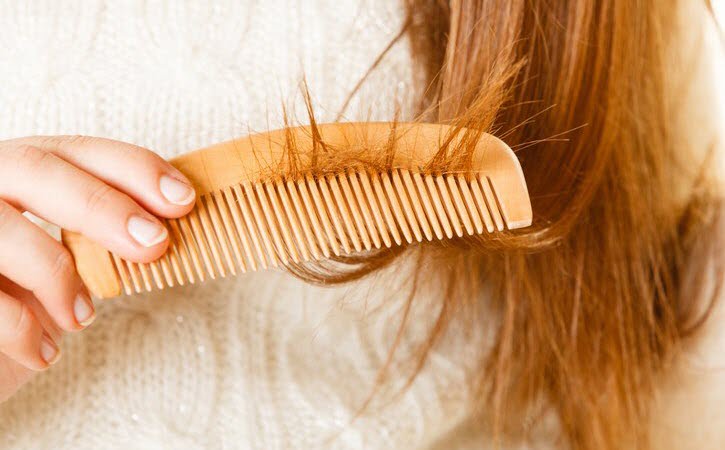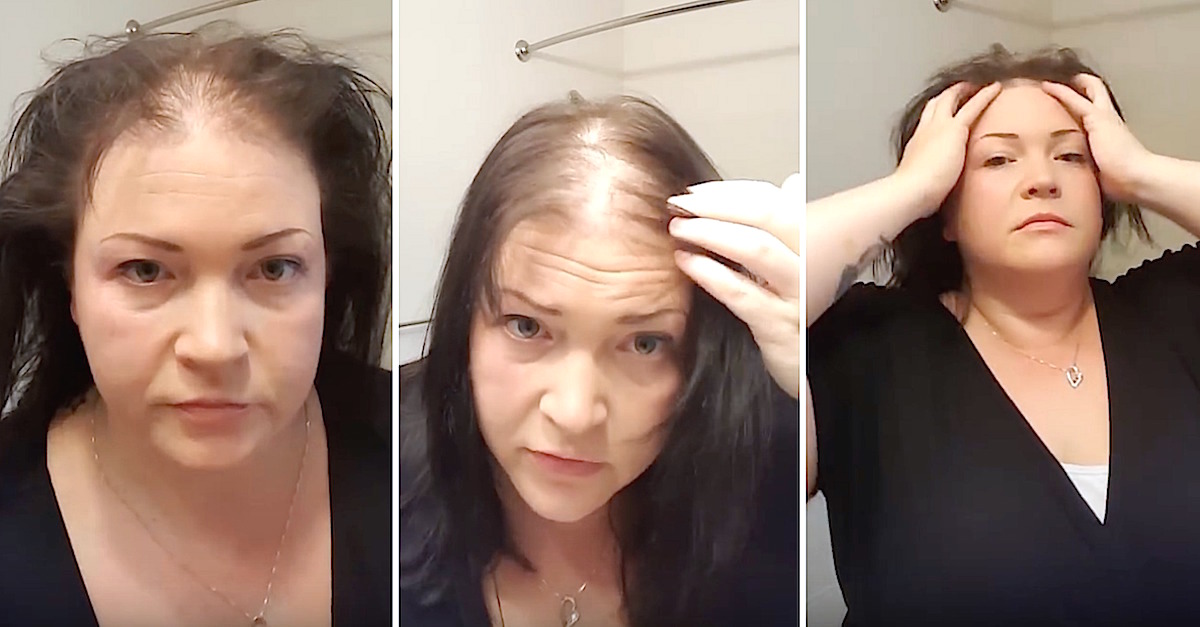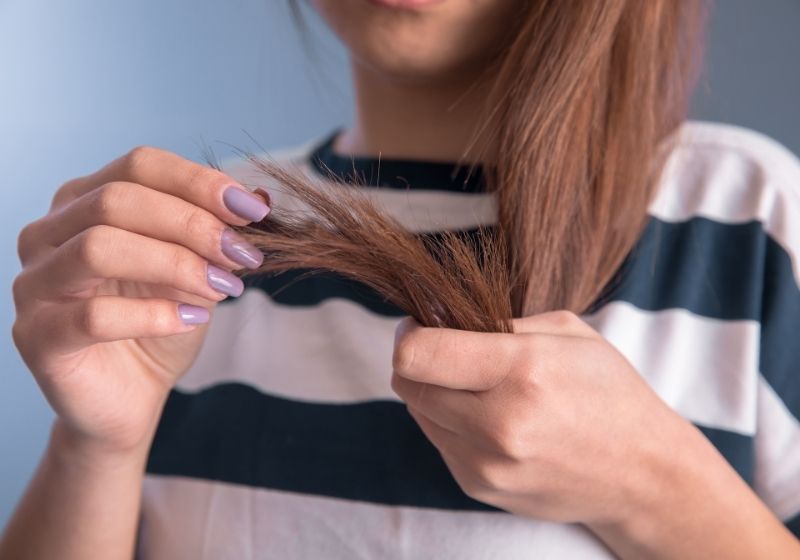Table Of Content

Both oral and topical estrogens are prescribed by physicians to treat hair loss in women, although there are no controlled studies to support this use of estrogen. The body needs nutrients to create new hair strands and maintain healthy hair follicles. Malnutrition, low protein levels, and vitamin deficiencies can increase the risk of hair loss. One example is alopecia areata, which is an autoimmune disorder where your immune system attacks hair follicles, causing thinning hair and sudden hair loss. Depending on the severity, hair loss may be mild or patchy, or more significant. Research suggests it's effective for about 40% of women with this condition.

Does Estrogen Affect Hair Loss?
In the most common type of permanent hair loss, only the top of the head is affected. Hair transplant, or restoration surgery, can make the most of the hair you have left. This usually isn't noticeable because new hair is growing in at the same time. Hair loss occurs when new hair doesn't replace the hair that has fallen out. Before pursuing hair loss treatment, talk with your doctor about the cause of your hair loss and treatment options. Although it’s common to lose hair throughout the day, it’s a good idea to speak with your doctor if you’re losing more than 100 hairs per day.

Diet And Nutrition
“With scarring hair loss, the goal is not for it to grow back, but to stop the progression,” says Dr. Lenzy. Below, are seven different kinds of alopecia —knowing which one you’re suffering from will help determine the proper treatment. But if your follicles become damaged, the hair loss may be permanent.
Causes of Thinning Hair in Men and Women
If you have polycystic ovary syndrome (PCOS), your hormones are always out of whack. Your body makes more male hormones, or androgen, than it should. This can cause extra hair to sprout on your face and body while the hair on your head thins out. PCOS can also lead to ovulation problems, acne, and weight gain.
OTC medications may help reduce hair loss and promote growth. Other types of hair loss may involve treating the underlying cause. Although reducing your stress levels might seem insurmountable, making sure you’re eating the right things will go a long way to setting a good foundation for optimum hair growth.
Female pattern baldness is largely genetic, affecting hair along the top of a woman’s head. When it comes to effluvium—rapid hair shedding due to physical or emotional stress—treatments focus on finding the underlying cause. If a medication or disease is at the root, treatments focus on those. For anagen effluvium, caused by cancer treatment, there’s some evidence that cooling the scalp during chemotherapy may help preserve hair. But with other types, such as telogen and anagen effluvium, hair loss is reversible.
Why You're Losing More Hair and the New Science to Help Regrow It - Oprah Mag
Why You're Losing More Hair and the New Science to Help Regrow It.
Posted: Mon, 11 Sep 2023 07:00:00 GMT [source]
Get the latest in health news delivered to your inbox!
For most people, the lost hair grows back, and you maintain a full head of hair. But illness, hormonal changes, stress, aging and inherited conditions can interfere with your hair’s growth cycle. More hair falls out, but new strands don’t always grow back.
Hair Loss Treatments to Avoid
Chemical hair products and treatments can cause permanent hair damage. Women typically see hair loss related to hair products more often than men. If done improperly and with the wrong products, chemical hair curling, bleaching, relaxation treatments, coloring, or perming can cause hair loss. If you notice hair loss, talk to your doctor as soon as you can. Pregnancy, and especially giving birth, can lead to hair loss. You're most likely to see hair loss about 3 months after giving birth.
Correcting the underlying problem is often all that’s needed to help stop hair loss. Shampoos cannot prevent hair loss or bring hair back, but a moisturizing shampoo can help the hair retain moisture, making it look thicker and fuller. It may also help slow thinning by reducing the risk of breakage. Hair growth may take 6–12 months to improve, but if a person stops using the treatment, hair loss will recur. The Food and Drug Administration has approved a low-level laser device as a treatment for hereditary hair loss in men and women. A few small studies have shown that it improves hair density.
Nearly two-thirds of participants experienced some kind of improvement after 1 year. Those who began the trial with more pronounced hair loss saw the most benefit from the medication. Research indicates that this method may serve as a safe and efficient treatment for hair loss. PRP includes extracting a small portion of your blood, processing it in a machine to separate its the plasma, and injecting the plasma portion into the affected scalp area. It is important to know that androgenetic alopecia typically appears differently in women than men.
9 Best Vitamins for Hair Growth, According to Dermatologists 2024 - Glamour
9 Best Vitamins for Hair Growth, According to Dermatologists 2024.
Posted: Mon, 15 Apr 2024 07:00:00 GMT [source]
For this test, they gently pull on a chunk of your hair to see how many strands come out. Your doctor may use a lighted microscope to look for any hair shaft disorders. By Tracee CornforthTracee Cornforth is a freelance writer who covers menstruation, menstrual disorders, and other women's health issues. A person should always dilute essential oils with a carrier oil, such as jojoba or coconut oil.
“This often happens when hairstyles like tight ponytails, braids, or extensions are worn regularly,” Dr Shah explained. Losing a certain amount of hair everyday is considered normal. It is thought we shed around 50 to 100 hairs naturally throughout the day. Hair tends to regrow on its own when the rubbing stops. Some people pull on their hair, often to relieve stress.
Hair regrowth usually begins within a few months after you finish treatment. Effective treatments for some types of hair loss are available. You might be able to reverse hair loss, or at least slow it. With some conditions, such as patchy hair loss (alopecia areata), hair may regrow without treatment within a year.
This is because the receptors that bind to androgens are different in distinctive areas of the body. It ranges from normal hair density to a bald crown, which is rare. The scale helps document female pattern baldness, a condition your doctor might call androgenic alopecia. You probably know it as male pattern baldness, but it affects about 30 million American women. Experts think genes and aging play a role, along with the hormonal changes of menopause.
Also, because hair follicles shrink during this time, your hair might be thinner, fall out easier, and grow more slowly. Fortunately, hair loss in women typically does not result in complete baldness, as is often the case with men. Baldness (androgenic alopecia) is the most common type of hair loss. It affects an estimated 80 million individuals in the U.S. Some studies suggest that rosemary oil could improve scalp health by increasing blood flow. However, research into their effectiveness is lacking.

No comments:
Post a Comment